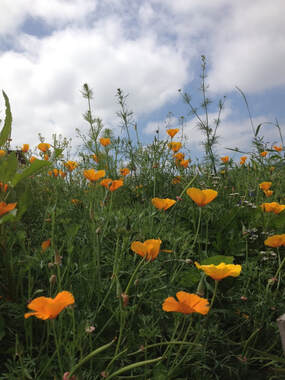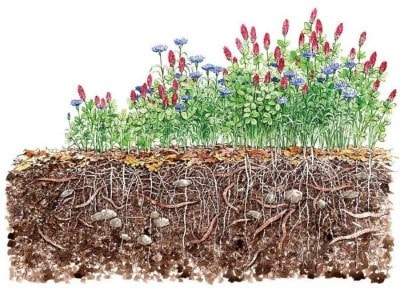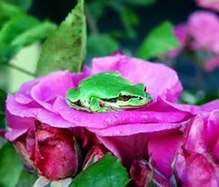|
12/3/2020 2 Comments March 12th, 2020 Focus on Sustainability: It’s About Two Relationships Like any job, farming is hard work – not only mental, but physical too. It’s also deeply satisfying in that unlike many other jobs, the principles and practices to being a good farmer are found in the natural world. To be a truly good farmer, one must allow oneself to be humbled and admit that nature is the true teacher. Relationship number one. But there’s another relationship in farming: you, our customers, our extended neighborhood and friends. In relationship number two, it’s our responsibility to let you know how much we appreciate your patience and support as we work to produce the healthiest vegetables we can for you and your family. The natural world is not always linear. 😊 In relationship number two, we also need your understanding. Farming is a tough way to make a living! Based on a 2016 article by Debbie Weingarten (co-founder of the Farm Education Resource Network), the average farmer is not financially thriving. Although her statistics speak to larger farms than ours, they still relate to us: “The projected median farm income for 2016 is negative $1,473. Just about the only statistic projected to rise in 2016 is farm debt” (https://aeon.co/ideas/foodie-localism-loves-farming-in-theory-but-not-in-practice). A good question is: Then why do farmers continue to farm if it’s not a profitable enterprise for so many? Because we love farming! Sustainable farming is a transformative act of love, life-long learning and partnership. When First Light Farm started nine years ago, we made a commitment to care first for the two P’s of Sustainability: Planet, People, and Profit. We chose to put first the health of our soil and the well-being of our staff believing that these initial commitments would ultimately bring about financial sustainability (profit) for the farm. We have invested money into the regeneration of our soil and chosen to pay higher wages than all of the other farms in our valley (still not high enough to truly support these young farming professionals). Although First Light Farm has yet to make a profit, we are a stronger farm today with greater knowledge, resiliency, and commitment to do what’s right even in these challenging times. We have our eye on a fully sustainable future where First Light Farm is actively involved in supporting young people’s research into the relationship between climate change and agriculture. This is long way of saying thank you: thank you for believing in us. Thank you for supporting us through our CSA program. Thank you for your friendship. In this circle of healthy soils to healthy families, we are in this together. Farmer Jane
2 Comments
8/3/2020 2 Comments Try Cover Cropping! Focus on Sustainability: Cover Cropping Although we’re just beginning to propagate and plant for our u-pick and CSA programs, we’re also thinking about preparing for summer and early fall plantings of cover crops as part of our commitment to soil health and vitality. There are three main ways to improve your soil health: grow cover crops, mulch the surface with biodegradable mulches, and/or dig in organic soil amendments (such as compost, grass clippings, rotted manure or wood chips). At First Light Farm, we love planting cover crops for the green biomass they create as well as their ability to fix nitrogen into the soil. During the summer, we love to use buckwheat as a cover crop. It’s fast growing (it can grow 2’ high in less than 30 days), chokes out invasive weeds like bindweed (which we have at our farm), and also attracts bees. They love the flowers! You can try planting buckwheat in your garden if you have a place where you’ve struggled to get ahead of noxious weeds. Ask us if you’re interested in trying some buckwheat in your garden! We’re here to help! -- Farmer Jane 8/3/2020 0 Comments Loving Our WorldFocus on Sustainability: Falling in Love with the Natural World
One of my favorite reads is my quarterly “Yes!” magazine. Recently in the Summer 2019 issue, I read with delight an essay by Richard Schiffman, an environmental journalist, called “Off the Beaten Path at Home”. In his essay, he encourages people to move beyond seeing the degradation of our environment as merely a mechanical problem that can be solved through changing policies, etc. Instead he argues that the real problem is that “we don’t love the world enough.” His statement stopped me cold. I completely agree, but have never had the language or courage to say it publicly. According to Schiffman, we don’t love the world because “we don’t see it… we don’t see it because we aren’t paying attention.” His suggestion is to find a new place in nature every day, bring a notebook on your walk, create a poem about what you see and feel. For painters/drawers, bring a sketchpad. Lastly, he says “Don’t be afraid to put away your mapping app and get lost.” We hope you will come to our farm this summer so that you too can fall in love. Our farm stand usually opens in mid- to late- June. Individuals and families will have the opportunity to build a relationship with the farm, not just the vegetables we grow, but more importantly the ecosystem that we participate in. Bring a picnic and spend time alone or with your family experiencing the wonder of the natural world. Warning: Prepare to fall in love! Saturdays/Sundays, 10-5 pm. --Farmer Jane 3/9/2018 1 Comment Farm Community NewslettersA little frog brings a message of soil renewal last week. Jane, Warren and I began the task of taking apart the farm and putting it to bed for Winter. Midway through the drizzly Sunday afternoon, as I was emptying and bundling hose after hose, I suddenly noticed a little flicker of green dart through my peripheral vision. I stopped what I was doing and tried to focus my eyes where it had been. I could barely see him—he was camouflaged so well—but there on the stalk of one of our squash plants was a bright green frog. He was no bigger than 3 cm long, and had a little yellow-orange spot on his head the exact color of a wilting squash blossom.
Later that day Warren called me over to inspect a pile of eggs he had found! Underneath the protective foliage they were nestled into a little indentation in the earth, maybe 30 or so tiny, white, perfectly spherical eggs. After some deliberation we agreed they must belong to a reptile or amphibian: Probably another frog! As enchanting as this wildlife was to witness in person, it is also a great sign for the health of our farm! Amphibians are known to be very sensitive to their surroundings because they have a very thin, permeable skin that allows environmental toxins to easily enter their bodies. Consequently, the presence of frogs and salamanders can be taken as a sign that an area is more or less free from pollution. What an amazing compliment to our farm that a frog chose to make its home and lay its eggs amongst our plants! This is just one of many changes that we have seen in our mini-ecosystem over the course of the season. Back in Spring I remember looking out at fields of morning glory and hard, dry, clay soil and feeling a little daunted. But as we added organic matter to the soil, added food sources for pollinators, and created little habitats, we began to see an influx of worms, bees, butterflies, birds, and now frogs. Our weed diversity changed as well: what started off as a sea of pure bindweed is now a sea of bindweed with islands of clover, german chamomile, dandelion, dock, and lambsquarter (to name a few) speckled throughout the landscape. As a culture and as a farm, we still have a lot of work to do as we transition back to a food system that is sustainable for farmers, communities, and ecosystems. However, as we continue on this mission it’s important to savor the small victories: like watching a frog hop around your squash patch without a care in the world. Chloe Wood-Henrickson, First Light Farm staff farmer |
Archives
March 2020
Categories |
Proudly powered by Weebly

 RSS Feed
RSS Feed